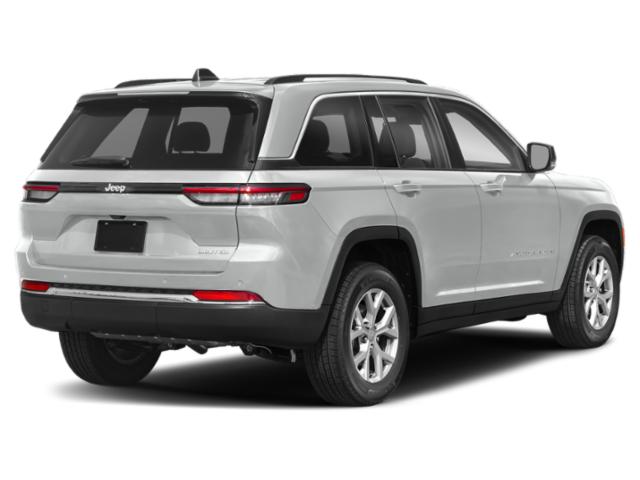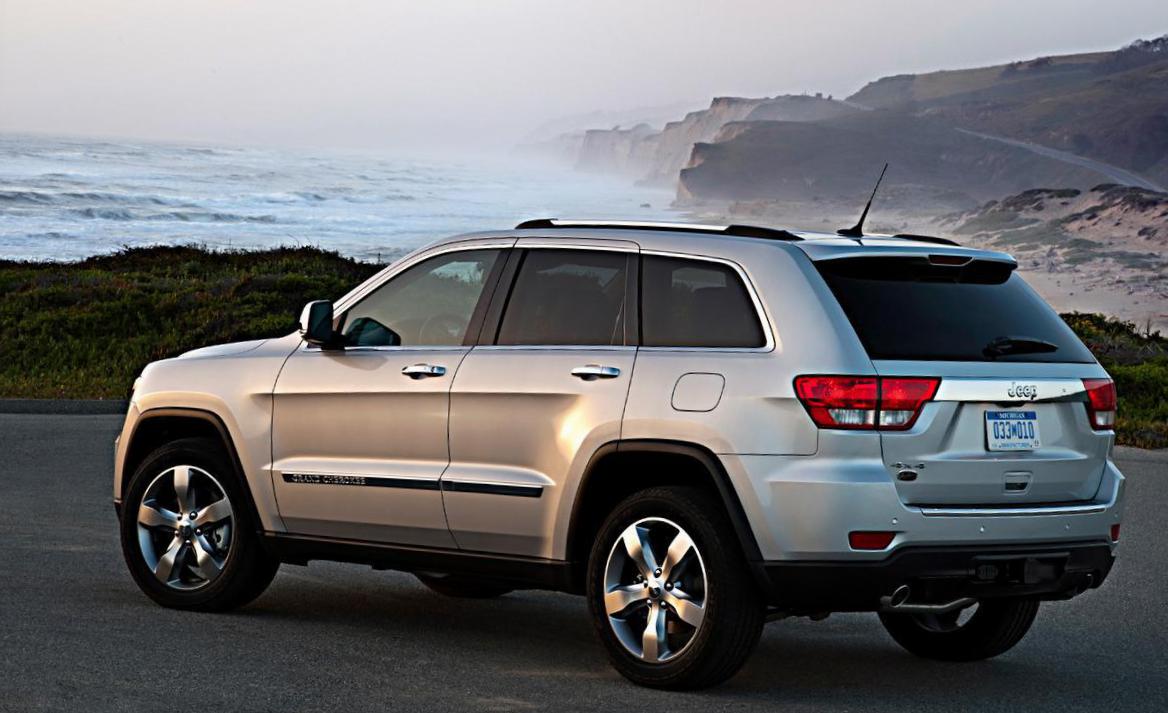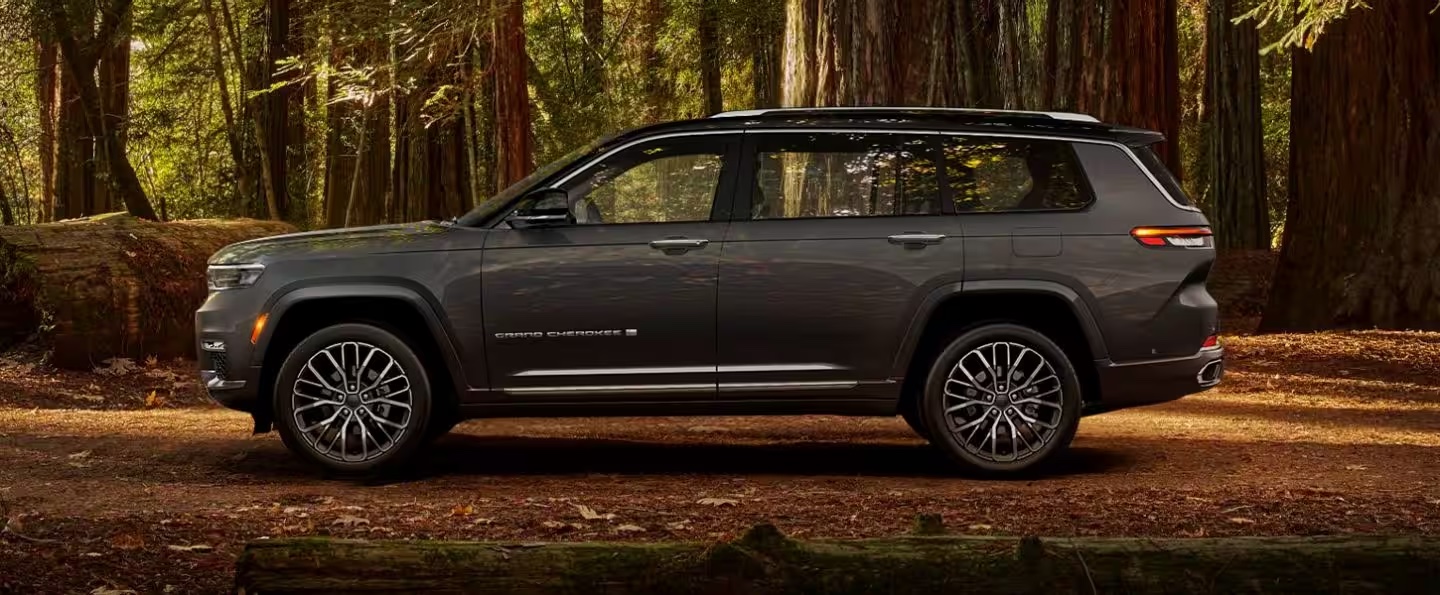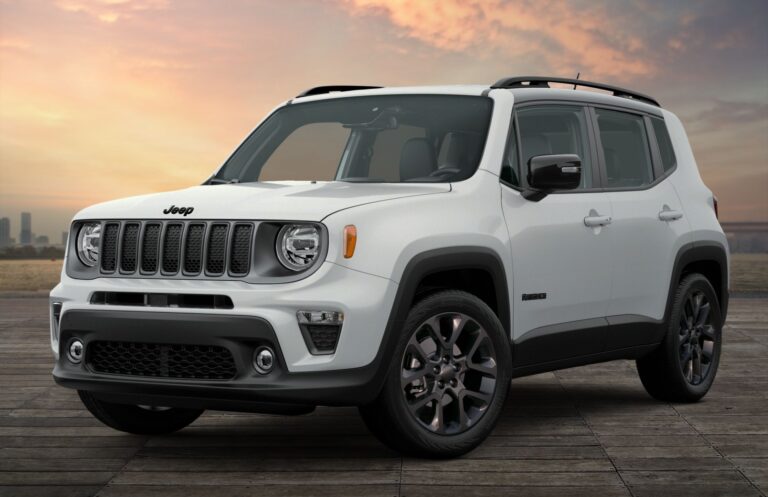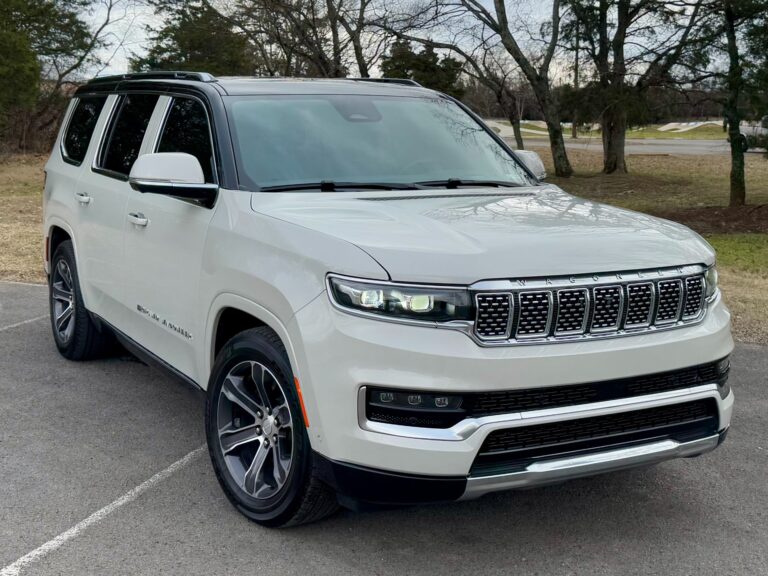Jeep Cherokee Business Lease: A Comprehensive Guide for Businesses
Jeep Cherokee Business Lease: A Comprehensive Guide for Businesses jeeps.truckstrend.com
In the dynamic landscape of modern business, strategic financial decisions are paramount. For many companies, acquiring reliable, presentable, and efficient transportation is a necessity, not a luxury. This is where a Jeep Cherokee Business Lease emerges as a compelling option, offering a smart alternative to outright purchase or traditional financing. A business lease, in essence, allows a company to utilize a vehicle for a fixed period (typically 24 to 60 months) in exchange for regular monthly payments, without assuming full ownership. It’s a method of vehicle acquisition that prioritizes cash flow, tax efficiency, and fleet modernization, making the robust and versatile Jeep Cherokee an ideal candidate for a wide array of commercial needs, from sales fleets to executive transport.
This comprehensive guide will delve into the intricacies of a Jeep Cherokee Business Lease, exploring its benefits, outlining the acquisition process, highlighting crucial considerations, and offering practical advice to help businesses make informed decisions.
Jeep Cherokee Business Lease: A Comprehensive Guide for Businesses
Understanding the Fundamentals of a Jeep Cherokee Business Lease
A Jeep Cherokee Business Lease is a contractual agreement between a business (lessee) and a leasing company (lessor), often a financial arm of the manufacturer or a third-party lender. The business pays a fixed monthly fee for the use of a new Jeep Cherokee over a specified term and mileage allowance. Unlike a purchase, the business does not own the vehicle; rather, it pays for the depreciation of the vehicle over the lease term, plus interest (known as the money factor) and fees.
Key elements of a typical Jeep Cherokee Business Lease include:
- Lease Term: The duration of the lease, commonly 24, 36, or 48 months.
- Annual Mileage Allowance: A predetermined limit on how many miles the vehicle can be driven per year (e.g., 10,000, 12,000, or 15,000 miles). Exceeding this limit incurs per-mile overage charges.
- Money Factor: Similar to an interest rate, representing the cost of borrowing for the lease.
- Residual Value: The estimated value of the Jeep Cherokee at the end of the lease term. This value is a significant factor in determining the monthly payment.
- Down Payment/Cap Cost Reduction: An initial payment made to reduce the total amount financed and, consequently, the monthly payments.
- Acquisition Fee: A fee charged by the leasing company for setting up the lease.
- Disposition Fee: A fee charged at the end of the lease to cover the costs of processing the vehicle’s return.

The Distinct Advantages of a Jeep Cherokee Business Lease
Opting for a Jeep Cherokee Business Lease can unlock several strategic advantages for companies:
- Improved Cash Flow Management: Business leases typically require lower monthly payments compared to loan financing for the same vehicle. This frees up capital that can be reinvested into core business operations, inventory, or expansion. Furthermore, initial outlays are often lower than a purchase down payment.
- Tax Efficiency: In many jurisdictions, lease payments for vehicles used for business purposes are tax-deductible as operating expenses. This can lead to significant tax savings, unlike purchasing where only depreciation and interest might be deductible. Consult with a tax professional for specific advice relevant to your business structure and location.
- Access to Newer Vehicles: Leasing allows businesses to regularly update their fleet every few years, ensuring employees drive modern, reliable, and technologically advanced vehicles. This enhances your company’s image and provides access to the latest safety features and fuel efficiencies offered by the Jeep Cherokee.
- Reduced Maintenance Concerns: Since lease terms often align with the vehicle’s warranty period, major repair costs are typically covered, minimizing unexpected expenses. Many leases also include or offer optional maintenance packages, further simplifying fleet management.
- Predictable Budgeting: Monthly lease payments are fixed, making it easier for businesses to forecast and budget transportation costs without the uncertainty of depreciation risk or large resale values.
- No Resale Hassle: At the end of the lease term, you simply return the Jeep Cherokee to the dealership. You avoid the time-consuming and often unpredictable process of selling a used vehicle, eliminating concerns about market value fluctuations.

Navigating the Jeep Cherokee Business Lease Process: A Step-by-Step Guide
Acquiring a Jeep Cherokee Business Lease involves a straightforward process:
- Assess Your Needs: Determine how many Jeep Cherokees your business requires, the preferred trim levels (e.g., Latitude, Limited, Trailhawk), desired features, and estimated annual mileage for each vehicle. Consider the specific use case – is it for urban commutes, client visits, or light off-road duties?
- Evaluate Your Budget: Establish a realistic monthly budget for lease payments, considering any potential down payments and other associated fees.
- Check Business Credit: Leasing companies will evaluate your business’s creditworthiness. Ensure your business credit profile is strong and up-to-date. Newer businesses might need to provide personal guarantees from owners.
- Research and Compare Offers: Contact multiple Jeep dealerships and leasing companies. Inquire about current lease specials, different trim level options, and various lease terms (e.g., 24, 36, 48 months) and mileage allowances. Get detailed quotes that clearly break down all costs.
- Negotiate Terms: Don’t hesitate to negotiate the lease price (also known as the "capitalized cost" or "cap cost"), the money factor, and even the mileage allowance. Sometimes, dealers are willing to be flexible, especially towards the end of the month or quarter.
- Review the Lease Agreement: This is a critical step. Carefully read every clause of the lease contract. Pay close attention to:
- Monthly payment amount and due dates.
- Total cost of the lease.
- Mileage allowance and overage charges.
- Wear and tear guidelines (what constitutes "excessive" wear).
- Early termination penalties.
- Maintenance responsibilities.
- Insurance requirements.
- Sign and Take Delivery: Once satisfied, sign the agreement and arrange for the delivery or pickup of your new Jeep Cherokee. Ensure you have the required insurance coverage in place before driving off.
Important Considerations for Your Jeep Cherokee Business Lease
While beneficial, a Jeep Cherokee Business Lease comes with specific considerations businesses must understand:
- Mileage Limitations: Exceeding the annual mileage allowance can lead to significant per-mile penalties at the end of the lease. Accurately estimate your business’s driving needs to select an appropriate mileage package.
- Wear and Tear Guidelines: Lease agreements define "normal" vs. "excessive" wear and tear. Minor dents, scratches, or interior damage beyond normal use can incur charges upon vehicle return. Maintain the vehicle well and consider a wear-and-tear protection plan if offered.
- Early Termination Penalties: Breaking a lease early can be very costly, often requiring payment of a substantial portion of the remaining lease payments and other fees. Ensure the lease term aligns with your long-term business plans.
- Insurance Requirements: Leasing companies typically require comprehensive insurance coverage, often with higher liability limits than state minimums. Factor these costs into your budget.
- No Equity Building: Unlike purchasing, you do not build equity in a leased vehicle. At the end of the term, you don’t own the asset, although most leases offer a purchase option.
- Business Eligibility: Leasing companies have specific criteria for business leases, which may include time in business, annual revenue, and credit history. Newer businesses might face stricter requirements or higher money factors.
Tips for Maximizing Your Jeep Cherokee Business Lease Benefits
To get the most out of your Jeep Cherokee Business Lease:
- Negotiate the Capitalized Cost: This is the most crucial negotiation point. A lower "selling price" for the lease will directly translate to lower monthly payments.
- Understand the Money Factor: Ask for the money factor (MF). You can convert it to an approximate annual interest rate by multiplying it by 2400. A lower MF is better.
- Consider Shorter Terms for Rapid Updates: If having the latest models is crucial for your business image, a 24 or 36-month lease might be preferable, allowing more frequent upgrades.
- Bundle Services: Some dealerships or leasing companies offer maintenance packages that can be bundled into your lease, simplifying fleet management and providing cost predictability.
- Maintain Records: Keep meticulous records of all maintenance performed on the vehicle, as well as any incidents or repairs, which can be useful at lease end.
- Review Your Needs Periodically: As your business evolves, so might your transportation needs. Review your mileage usage annually to avoid surprises at the end of the lease.
Potential Challenges and Solutions in a Jeep Cherokee Business Lease
Even with careful planning, challenges can arise with a Jeep Cherokee Business Lease:
- Challenge: Exceeding Mileage Limits:
- Solution: Monitor mileage regularly. If you anticipate going over, explore options with the leasing company:
- Pre-purchase additional miles at a lower rate than end-of-lease penalties.
- Trade in the vehicle early for a new lease (dealers might waive some penalties to secure a new deal).
- Buy out the lease at the end of the term if the buyout price plus overage charges is less than the vehicle’s market value.
- Solution: Monitor mileage regularly. If you anticipate going over, explore options with the leasing company:
- Challenge: Excessive Wear and Tear:
- Solution: Perform regular maintenance and address minor damages promptly. Consider professional detailing before returning the vehicle. If available, purchase a wear-and-tear protection plan at the beginning of the lease.
- Challenge: Need to Terminate Early:
- Solution: This is often expensive. Explore options like:
- Lease Transfer: Some leasing companies allow you to transfer the lease to another business or individual.
- Dealer Buyout: A dealer might buy out your lease if you’re getting a new vehicle from them, though this might involve rolling over negative equity into the new deal.
- Purchase Option: If the buyout price is favorable, buying the vehicle and then selling it privately might be an option.
- Solution: This is often expensive. Explore options like:
- Challenge: Market Value Changes:
- Solution: While you don’t bear the full risk of depreciation, if the vehicle’s market value drops significantly below the residual value, the purchase option at lease end becomes less attractive. Conversely, if the market value is higher than the residual, you have a valuable opportunity to buy the vehicle and sell it for a profit.
Illustrative Jeep Cherokee Business Lease Pricing Table (Hypothetical)
Please Note: The following table provides hypothetical examples for illustrative purposes only. Actual lease pricing is highly variable and depends on factors such as current incentives, your business’s credit score, regional offers, specific trim levels, optional features, and negotiation. Always obtain a personalized quote from a certified Jeep dealership.
| Lease Scenario (Hypothetical) | Jeep Cherokee Latitude (FWD) | Jeep Cherokee Limited (4×4) | Jeep Cherokee Trailhawk (4×4) |
|---|---|---|---|
| MSRP (Approx.) | $31,000 | $36,000 | $40,000 |
| Lease Term | 36 Months | 36 Months | 36 Months |
| Annual Mileage | 12,000 Miles | 12,000 Miles | 12,000 Miles |
| Down Payment | $0 – $1,500 | $0 – $2,000 | $0 – $2,500 |
| Acquisition Fee | ~$595 | ~$595 | ~$595 |
| Estimated Residual Value (%) | 58% | 56% | 55% |
| Estimated Money Factor (Approx.) | 0.00180 (4.32% APR) | 0.00190 (4.56% APR) | 0.00200 (4.80% APR) |
| Estimated Monthly Payment (No Down) | $390 – $450 | $460 – $530 | $510 – $590 |
| Estimated Monthly Payment (w/ Down Payment) | $340 – $400 | $400 – $470 | $450 – $530 |
| End of Lease Mileage Overage | $0.25 – $0.30 per mile | $0.25 – $0.30 per mile | $0.25 – $0.30 per mile |
| Disposition Fee | ~$395 | ~$395 | ~$395 |
Note on Calculation: Monthly payment generally calculated based on (Cap Cost – Residual Value) / Lease Term + (Cap Cost + Residual Value) Money Factor.*
Frequently Asked Questions (FAQ) About Jeep Cherokee Business Lease
Q1: What are the primary differences between a business lease and a personal lease?
A1: While the mechanics are similar, a business lease is typically tied to a business’s EIN (Employer Identification Number) and credit, rather than an individual’s SSN. It offers specific tax advantages for businesses (e.g., deducting lease payments as operating expenses) and can often be structured to meet commercial fleet needs, sometimes with higher mileage allowances or specific fleet management services.
Q2: Can my business buy the Jeep Cherokee at the end of the lease term?
A2: Yes, most Jeep Cherokee Business Lease agreements include a purchase option. The price is typically the residual value stated in your lease contract, plus any applicable fees. You can choose to buy it if the market value of the vehicle is higher than the residual value, or if you simply wish to keep the vehicle.
Q3: What happens if I go over my mileage allowance?
A3: If you exceed your agreed-upon annual mileage, you will be charged a per-mile penalty (e.g., $0.25-$0.30 per mile) for every mile over the limit at the end of the lease. It’s crucial to estimate your mileage accurately or consider a higher mileage allowance upfront.
Q4: Is maintenance included in a Jeep Cherokee Business Lease?
A4: Standard maintenance is generally not included in the basic lease payment, though the vehicle will be covered by the manufacturer’s warranty for the duration of most lease terms. Some dealerships or leasing companies offer optional prepaid maintenance plans that can be bundled into your monthly payment.
Q5: What credit score does my business need to qualify for a lease?
A5: While there’s no fixed number, a strong business credit history is essential. Lenders typically look for a good D&B Paydex score or strong personal credit scores from the business owners, especially for newer businesses. The better your credit, the more favorable your money factor (interest rate) will be.
Q6: Can I customize a leased Jeep Cherokee?
A6: Minor, easily reversible customizations (e.g., floor mats, seat covers) are usually fine. However, permanent modifications that alter the vehicle’s structure or performance (e.g., lift kits, major engine mods) are generally prohibited and could result in significant charges at lease end. Always check your lease agreement before making any modifications.
Conclusion: Driving Business Forward with a Jeep Cherokee Business Lease
A Jeep Cherokee Business Lease represents a pragmatic and financially astute approach to vehicle acquisition for many companies. Its inherent benefits—from preserving capital and offering tax advantages to ensuring access to modern, reliable transportation—make it an attractive proposition. By carefully understanding the terms, planning for mileage and wear, and leveraging practical advice, businesses can harness the versatility and capability of the Jeep Cherokee to support their operations efficiently. It’s more than just a vehicle; it’s a strategic asset that, when leased wisely, can significantly contribute to your company’s financial health and operational agility, helping you navigate the road ahead with confidence.
